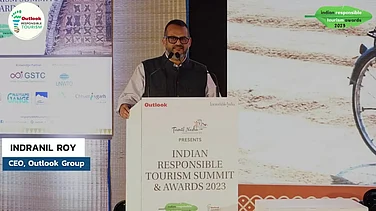Namita Gokhale shares her journey, her connection with the literary world and her stand on writing in the current scenario. Excerpts from the interview below:
* You’ve always had a deep connection with books. How has the journey been — from conceptualising Kitaabnama for Doordarshan till 2021, when you released your latest book?
I have had a long, fruitful and joyous journey all the way. It’s been a real privilege to be surrounded by books and writers and readers, by arguments and poetry and literary friendships. A part of me likes to hide in a corner and write my heart out. I also like to reach out, to interact with people, to create connectivity. Kitaabnama — which I curated for Doordarshan for two years — had the most enormous footprint and outreach and the legacy remains in the hundred episodes still available on YouTube. My twentieth book is also a landmark, as is the Sahitya Akademi Award for English 2021.
Advertisement

* Could you tell us something about your recent book, The Blind Matriarch?
The Blind Matriarch was written in real time during the first and second lockdowns. It is told through the perspective of an old woman who lives on the top floor of the family house, presiding over her two sons, her daughter-in-law and daughter, her grandchildren, and the two ladies who help run the household. It’s a quiet story — nothing much happens on the surface, but there are unseen depths, secrets and hurts from the past, and the complex inner life of an Indian joint family.
Advertisement
* You’ve been behind several other initiatives too — International Festival of Indian Literature, Neemrana, and the Africa Asia Literary Conference, among others. You’ve also been advising The Himalayan Echoes Kumaon Festival for Arts and Literature and the Abbotsford Literary Weekend. What, in your view, are the binding elements of all such institutions? Also, what makes them exclusive from each other?
All these literary initiatives require deep, trusting and playful creative collaborations. Working together as a team, supporting each other’s strengths, recognising the weak links in the chain — these things are important in building and sustaining organisations. The Bhutan Literature Festival, the Kumaon LitFest, Jaipur [JLF] — all of these have been so different in size and scale, but they share a sense of joyous energy. The International Festival of Indian Literature, Neemrana, and the Africa Asia Literary conference, as well as the various international editions of the JLF have all been full of learnings and life lessons.

* Of course, the role that these institutions or initiatives play is huge. But could you elaborate on some salient features that set the right cultural tone in the society?
There are no prescriptive rules in my understanding of culture. It is an intrinsic and natural activity of the human species to share stories, to rejoice in music, to enhance their individual experiences and understanding through community.
* How do you feel the writing styles of authors have changed over the years?
I think literature, like everything else, moves in cycles. The old stories return, even as words and their meanings may change. Books endure, and that is their strength.




















